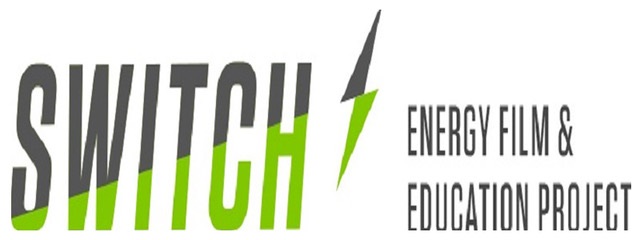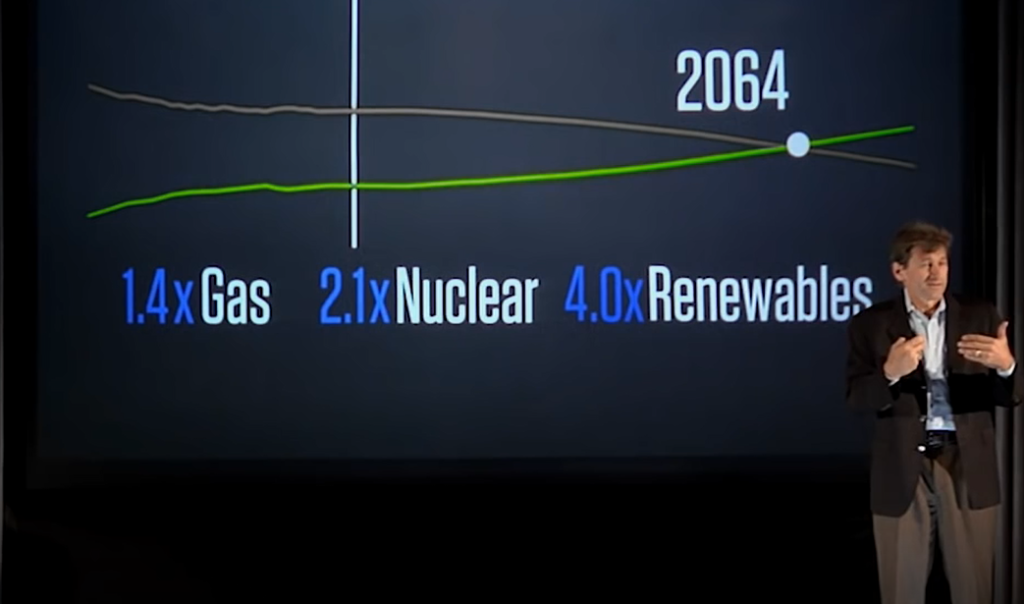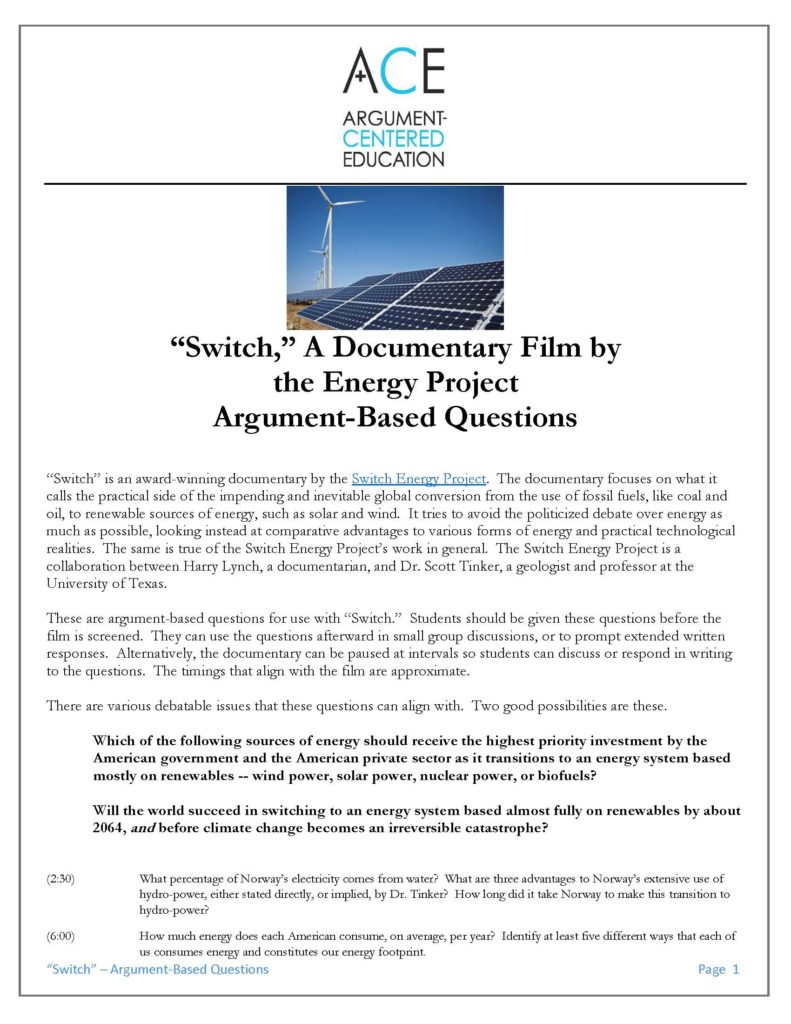
Argumentalizing “Switch,” a Documentary by the Energy Project
I have recently been working with a partner school’s science department and its renewable energy unit. The unit takes a kind of “nuts and bolts” approach to the variety of energy sources that currently produce the world’s energy supply, looking at technological practicalities and some of the science and engineering — and economic — principles at work in the viability of each type of renewable energy projected to be part of the world’s transition this century away from traditional fossil fuels. We decided to focus our argumentalization on a four-day portion of the unit that uses “Switch.”
“Switch” is an award-winning documentary by the Switch Energy Project, which has been viewed more than 7 million times, the vast majority of those taking place in schools. The documentary focuses on what it calls the practical side of the impending and inevitable global conversion from the use of fossil fuels, like coal and oil, to renewable sources of energy, such as solar and wind. It tries to avoid the politicized debate over energy as much as possible, looking instead at comparative advantages to various forms of energy and practical technological realities. The same is true of the Switch Energy Project’s work in general. The Project is a collaboration between Harry Lynch, a documentarian, and Dr. Scott Tinker, a geologist and professor at the University of Texas.

We created together a set of argument-based questions for use with “Switch.” We decided that students should be given these questions before the film is screened. We agreed that teachers in the department could use the questions afterward in small group discussions, or to prompt extended written responses. Alternatively, the documentary could be paused at intervals so students can discuss or respond in writing to the questions. The timings on the resource that are designed to align with the film are all approximate.

There are various debatable issues to which these questions can align. Two good possibilities are these.
Which of the following sources of energy should receive the highest priority investment by the American government and the American private sector as it transitions to an energy system based mostly on renewables — wind power, solar power, nuclear power, or biofuels?
Will the world succeed in switching to an energy system based almost fully on renewables by about 2064, and before climate change becomes an irreversible catastrophe?
What makes these questions argument-based, as opposed to common discussion questions? They emphasize listening for, identifying, analyzing, and evaluating the film’s arguments, and those of its various scientific experts on the topic of renewable energy. A couple examples illustrate this emphasis:
(17:00) Dr. Tinker makes the claim that oil is very tightly interconnected with the global economy. What is the best evidence he gives to support this claim?
(59:00) Which country invented the modern wind power turbine? Identify two of the major advantages of wind power. What is the biggest challenge to — or counter-argument against — scaling up the use of wind power? How has Denmark, in effect, attempted to rebut or refute this counter-argument?
Not all of the questions use the language of argument this frontally. Many of the questions ask students to look for and pinpoint key factual content from the documentary that is important to addressing the larger issue questions, like those above, and that is likely to be important to arguments they will later make or respond to in the unit. The key quality they all have is that they are framed within a pedagogy that has students build and demonstrate knowledge through argumentation.
The Switch Energy Project itself has additional resources that can be and have been used in the context of an argumentalized unit on renewable energy, and are well worth taking a look at, including very lucid videos on the basics of energy production and energy use. Content knowledge and critical thinking are, as my work with partner schools affirms each and every time, integral and interconnected.

